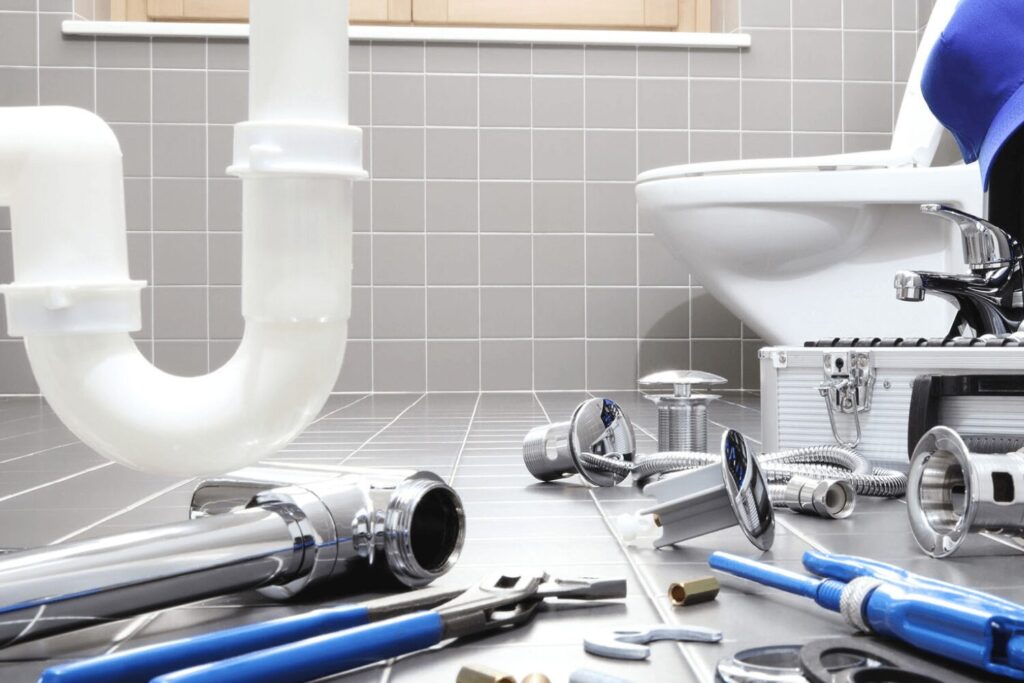Plumbing problems can disrupt your daily life and lead to costly repairs, especially in a place like Burlington, where homes may face weather-related wear and tear. Whether it’s a burst pipe, a leaking water heater, or clogged drains, homeowners often wonder: Will my home insurance cover plumbing issues? The answer depends on the nature of the problem, the cause of the damage, and the specific terms of your policy. In this blog, we’ll break down what plumbing issues are typically covered by home insurance and how to protect your Burlington home from unexpected water damage.
Common Plumbing Problems Homeowners Face
Plumbing systems are critical to any home, but they are not immune to damage and wear over time. Burst pipes are one of the most common problems homeowners encounter, particularly during the freezing winter months when low temperatures cause pipes to expand and crack. Leaky faucets and fixtures can waste significant amounts of water and drive up utility bills if left unchecked. Sewer backups, often caused by blockages or tree root intrusion, can create unsanitary conditions and extensive water damage. Water heater leaks are another concern, as they can cause flooding and damage to walls, floors, and belongings. Finally, clogged drains caused by debris buildup or aging pipes can slow down your plumbing system and lead to larger issues if not resolved promptly.
When Does Home Insurance Cover Plumbing Issues?
Home insurance typically covers sudden and accidental water damage caused by plumbing issues. For example, if a pipe bursts unexpectedly during winter and floods your home, your insurance policy will usually cover the repair costs and cleanup of the resulting damage. Similarly, if a water heater, washing machine, or dishwasher suddenly malfunctions and leaks, the insurance may cover the water damage caused but not the replacement of the appliance itself. Sewer backups, while unpleasant, may also be covered if your policy includes an endorsement for sewer and drain backups.
It’s important to emphasize that coverage is limited to unexpected incidents. If water damage occurs due to a sudden failure, insurance will step in to help you recover.
When Is Plumbing Damage Not Covered?
Insurance companies expect homeowners to maintain their plumbing systems to prevent avoidable damage. If water damage results from neglect, poor maintenance, or gradual wear and tear, your insurance is unlikely to cover it. For instance, if a slow leak develops over several months and causes damage, the insurer may determine it as negligence and deny the claim. Likewise, corrosion, rust, or outdated pipes that fail over time are considered maintenance issues rather than sudden accidents. Homeowners must inspect and maintain their plumbing regularly to avoid being left with unexpected repair costs.
How to Protect Your Home and Ensure Coverage
To safeguard your home against plumbing issues and ensure insurance coverage, proactive maintenance is key. Schedule regular inspections of your plumbing system to identify and address potential issues before they escalate. Insulate pipes during winter to prevent freezing, and replace aging water heaters and fixtures as needed. Additionally, consider adding sewer backup coverage to your policy, as this type of damage can be costly and disruptive. By staying on top of home maintenance and understanding the limitations of your insurance policy, you can minimize risks and ensure your home remains protected.
Final Thoughts
Plumbing issues are a common challenge for Burlington homeowners, and the coverage provided by home insurance depends largely on the cause of the damage. While sudden and accidental incidents are typically covered, gradual wear and neglect often fall outside the scope of a standard policy. By maintaining your plumbing system and understanding your coverage options, you can reduce the risk of unexpected costs and keep your home safe. If you’re unsure about the specifics of your insurance policy, it’s always a good idea to consult with your provider to ensure you have the protection you need.






